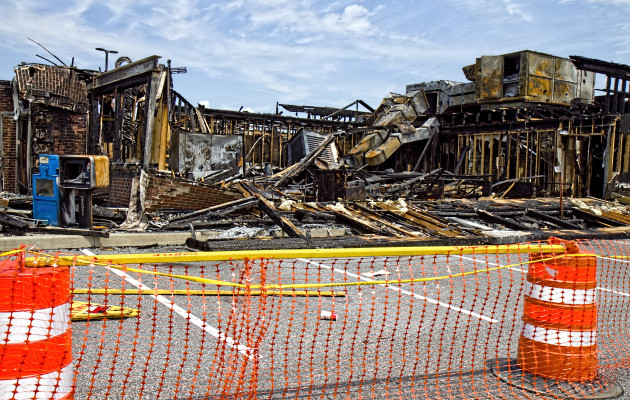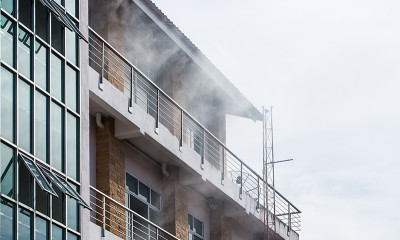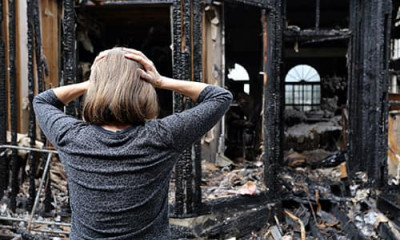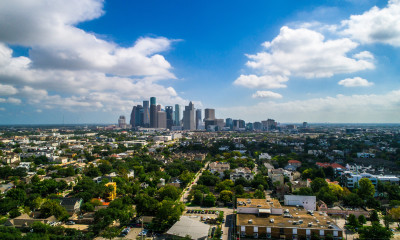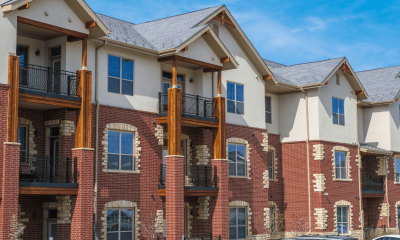Eight Commercial Fire Insurance Claim Tips for Business Owners
In 2021, the National Fire Protection Association reported 125,500 fires in non-residential structures, causing nearly $3.6 Billion in direct property damage. A property fire can be a business owner’s worst nightmare. The resulting property damage, well-being of employees, business interruption, and the complexities of fire insurance are just the tip of the iceberg.
David Moore, COO of Texas-based Jansen/Adjusters International (AI) has worked on commercial fire and business interruption claims for over 30 years. He notes, “When your business burns down, many important and possibly costly decisions need to be made quickly. The future success and survival of your business may depend on what management does in the days immediately following the fire.”
Here are eight top tips from the experts at Jansen/AI on the steps business owners should take immediately following a business or commercial property fire:
1. Prevent Further Damage
Every business owner’s first step immediately after a fire should be to mitigate damage. Not only will this help reduce the level of damage overall, but it will also protect your claim. The insurance company can deny coverage for additional damage if a policyholder does not attempt mitigation efforts.
Although each loss is different, some general examples of mitigation after a loss include tarping any holes in the roof, turning off water mains, and adding security fencing around the property. Many business owners have contractors or maintenance staff, but sometimes their efforts may not be enough to satisfy the insurance carrier’s requirements. The best course of action is to contact a professional loss consultant as soon as possible to determine the exact steps needed to preserve your property and coverage under your insurance policy(s).
2. Speak to the Experts
The first mistake a business owner can make is assuming that their insurance company will take care of all the details of their fire insurance claim. Due to heavy workloads and competing interests, this is not always the case. Business owners should take the lead by working with their own experts and emergency responders to:
- Procure a fire report from the fire marshal.
- Request current building codes from local building inspectors.
- Hire a public adjuster to guide them through the claims process.
- Enlist engineers and architects to determine the extent and cause of the damage.
Experts such as forensic accountants may also be able to help with your commercial fire claim. Forensic accountants can help analyze invoices, calculate the valuation of inventory, and organize items for business owners and insurance carriers to review. They can also present findings in court if necessary.
Luis R. Esteves, Principal & Executive General Adjuster at Jansen/Adjusters International, states, “We always recommend that policyholders stay active in procuring their own experts and collecting their own documentation. A licensed public adjuster can assist with gathering and organizing this information.”
Many business owners can be hesitant to hire public adjusters because their business has its own risk management department and/or contractors. While these experts may be able to provide estimates for repairs, they legally cannot negotiate with the insurance company in any regard. Public adjusters, on the other hand, are licensed to negotiate with the insurance company on behalf of the policyholder.
3. Notify Your Insurance Company
Policyholders should notify their insurance company as soon as possible after a fire. All policies require notification, and the insurance company can deny a claim that isn’t submitted within a reasonable period after the damage-inducing incident occurred. Provide the date and time of the incident, a copy of the fire report if available, and any other details you can regarding the extent of damage and required repairs.
Moore notes that policyholders must notify their insurance carrier, “They do not need to sign any binding settlement agreements or repair cost estimates at this point. They only need to notify the insurance company that damage has been sustained.”
4. Protect Your Business and Employees
After a fire, it is essential that your business stays afloat, including ensuring that your key employees are paid and retained while the business is closed. After commercial property damage, the results of the business interruption claim come down to what coverage the owner has and, equally as important, how the loss of income is calculated. If the policy has extra expense coverage, temporary locations will be covered, the equipment can be rented, and owners can even work with competitors to borrow or use their locations and equipment.
The loss of income coverage provides for continuing pay to key employees — but “key employees” are not explicitly defined. This leaves it up to the business owner and their public adjuster to negotiate with the insurance company to prove who qualifies for continued compensation. In this time of labor shortages, the case can be made for many levels of employees to be considered key and kept on through the interruption.
5. Stay Organized
Create a tabulated binder to hold copies of your full insurance policy and all estimates, written communications, receipts, claim-related notes, and backup documentation. Keep receipts and documentation for any purchases made for equipment, alternative office spaces, and anything else resulting from business interruption and property damage. An adequate organization system will help the owner prove their claim and meet all the required insurance policy conditions.
It is always the policyholder’s responsibility to prove their claim. Still, unless these documents are presented in an organized and supportable manner, there will be very little chance of a full recovery. There is a world of difference between meeting the insurance company’s representative with an organized binder of claims presentation materials and just handing them a messy box of crumpled papers. Staying organized will make the claims process easier for you, your business, and the insurance company.
6. Know that Fire Claims are Unique
Fires are unique in several ways, but smoke damage and water damage are often the biggest challenges. Smoke from the fire and water used to extinguish the flames can often seep behind walls, under flooring, and above the ceiling. This undetected damage can later lead to compromised building materials and hazardous mold growth.
Moore notes, “Damage caused by smoke and water is sometimes worse than that caused by the actual fire because it can be hidden or found in another part of the building. Missed smoke or water damage sustained in December may become a huge problem the following June when rising temperatures and humidity cause the smoke and water to heat up and spread.”
This is another reason public adjusters can be a beneficial addition to your post-disaster team. Oftentimes, the insurance company’s representatives may fail to look for deterioration beyond what they see on the surface. Experienced public adjusters assess damage thoroughly and know to check insulation behind walls to ensure anything damaged by smoke is properly cleaned or replaced.
Smoke and water can also result from fires in neighboring buildings. The walls of shared buildings, office spaces, or even nearby commercial buildings can be penetrated by smoke and water from firefighting efforts causing property damage to your building.
If your business was damaged by an adjacent building’s fire, causing property damage, it’s better to file your own claim with your insurance carrier rather than working with the insurance policy of the business with the primary damage. Working with your own policy and insurance carrier gives you more rights as a policyholder and can ensure you receive a better settlement.
7. Stay Calm to Avoid Bad Decisions
The fear of halting operations and the urgency to reopen can cause many business owners to make expensive compromises during the claims process. Rushing to reopen can lead to larger financial losses down the road when the building is compromised. Additional repairs must be made at the owner’s expense, resulting in extended disruption of the business in the long run.
One of the most common occurrences of rushed decisions is business owners not reading and fully understanding their fire coverage. When contractors approach business owners with estimates and offers to rebuild, signing up for deals that don’t line up with your business’ coverage is unwise. It can jeopardize a full recovery on your insurance claim.
Rather than focusing on reopening as quickly as possible, step back and make sure you understand your coverage and that you focus on getting repairs and rebuilding done correctly.
8. Assess Different Coverages for Different Businesses
In addition to understanding coverage for fire insurance claims, some businesses have specific coverages to be aware of. For example, franchised restaurants and hotels can have very specific needs for rebuilding and repairing. Most franchises have their own insurance policies, but they must adhere to overall company standards — such as color schemes and furniture — when rebuilding. This can be a sticking point with the insurance company, and business owners may need to prove the necessity to have these specific requests for replacement.
Unique coverages also apply to businesses in strip malls. Most of the time, landlords will place a requirement in the lease that businesses must have their own insurance policy. If that tenant doesn’t get their own policy and has a fire or damage claim, in most cases, the landlord is not responsible for business personal property or loss of income of the tenant. Be sure to read your lease carefully to understand what coverage you need.
Another common policy issue many business owners don’t understand is recoverable depreciation, which is the gap between replacement cost and actual cash value (ACV). Many policyholders assume they will receive replacement costs for their items when they will only initially receive the actual cash value. After purchasing the new item, they will be compensated for the difference between the full price and the ACV. This is important to know when beginning to replace items and determine settlements.
Although it’s impossible to be 100% prepared for all types of business fires, planning, working with qualified experts, and following the tips above will give business owners a better chance at thriving financially after a major property loss.
Jansen/Adjusters International’s public adjusters can help you recover from severe property damage. Visit the contact us page here or call 800.992.7771.

